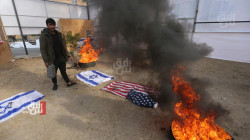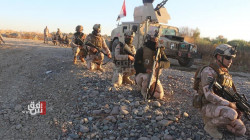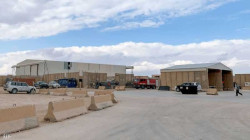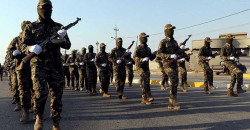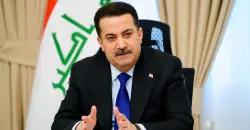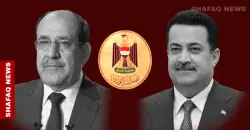Iraqi Armed Factions maintain media silence, waiting for Al-Sudani
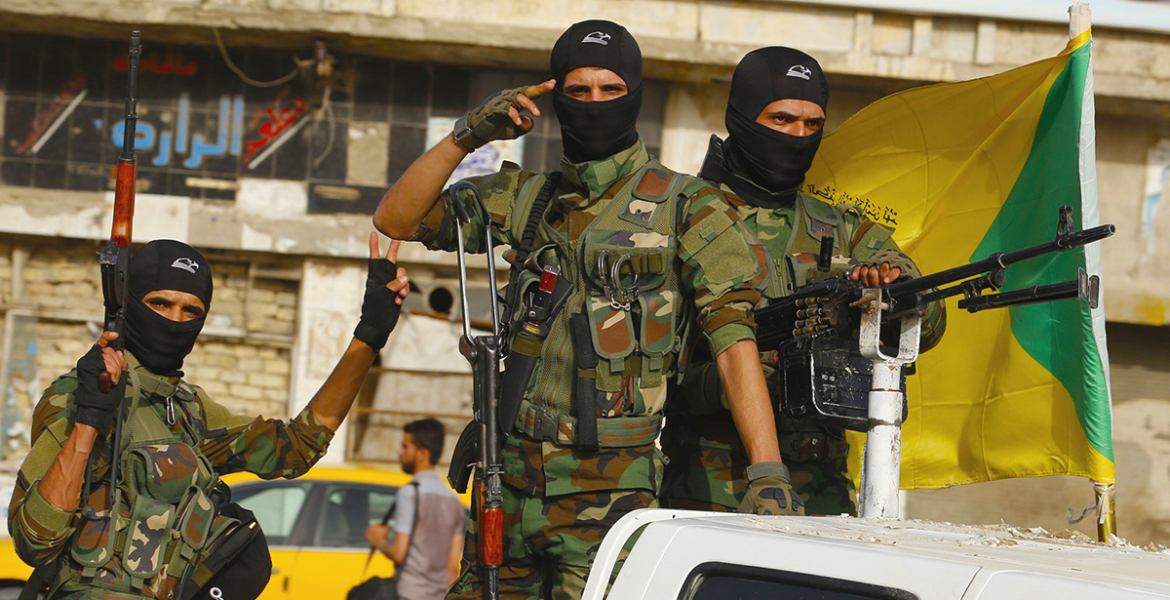
Shafaq News/ Iraqi armed factions announced a temporary "media silence" as they await discussions with Prime Minister Mohammed Shia Al-Sudani regarding the outcomes of his meetings in the United States concerning the withdrawal of U.S. forces from Iraq.
Sources within the armed factions revealed to Shafaq News Agency on Saturday that the "coordination body of the resistance faction" called all spokespersons and leaders to halt public statements, even regarding the recent attack at a Popular Mobilization Forces' camp in Babil.
The sources explained that the directive is to await PM Al-Sudani's return to Baghdad, where leaders of the armed factions plan to discuss the details of his meetings in Washington regarding the withdrawal of U.S. forces.
"Following this meeting, a clear and public stance will be taken by the factions regarding the potential continuation or resumption of operations against U.S. forces in Iraq." The sources said.
In January 2020, Iraq's Parliament approved a non-binding resolution urging the government to remove foreign troops from the country amid escalating tensions between Iran and the U.S. and after the killing of the prominent Iranian military commander Gen. Qassem Suleimani in Baghdad with the leader in the Popular Mobilization Forces, Abu Mahdi Al-Muhandis, in an American strike.
There are 2,500 US troops in Baghdad for training and advisory missions. However, the situation has escalated after October 7.
Since the start of the Israeli aggression in Gaza, the Islamic Resistance in Iraq (IRI) has regularly attacked the U.S. interests in Iraq and Syria.
The deadliest attack was in Jordan when Kataeb Hezbollah killed three American soldiers at a U.S. base.
IRI stated that its operations are to "expel the American occupation" and in support of "Palestinian brothers."
So far, more than 195 attacks have targeted the U.S. bases.
In a series of retaliation, the U.S. military launched airstrikes on sites related to Iranian-backed forces in Iraq and Syria, killing members of Popular Mobilization Forces in Iraq and commanders of the Iranian Revolutionary Guards and Lebanon's Hezbollah in Syria.
Notably, activities had subsided since early February, a month after Washington and Baghdad announced the resumption of talks within the joint Higher Military Commission (HMC) to discuss the threat of ISIS, the operational environment, and the capabilities of the Iraqi Security Forces.
Now, with the Iraqi prime minister's visit to the United States to discuss security files, the escalation in the region is continuing.
In the recent Iranian attacks on Israel, Washington and Tel Aviv said that the Iraqi airspace was used; Iraq did not comment on the incident; however, yesterday's attack on a PMF headquarters in Babil governorate raised questions about the U.S. sending a message for the Iraqi factions to stay away from the Israeli-Irania conflict.
Washington denied any involvement in the Babil attack.
